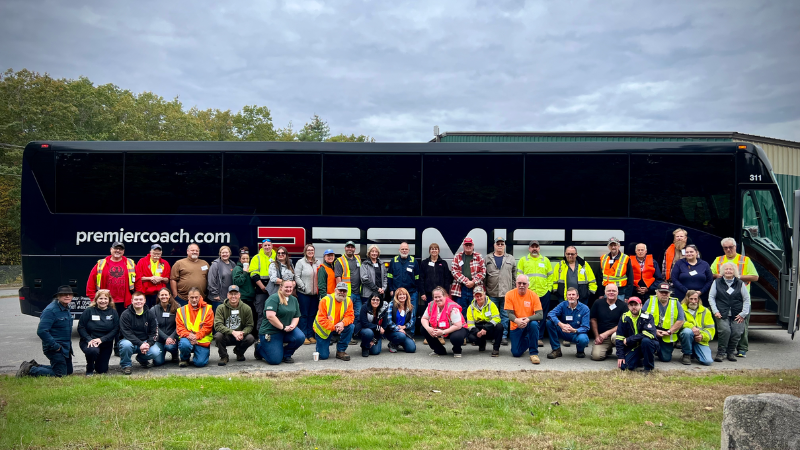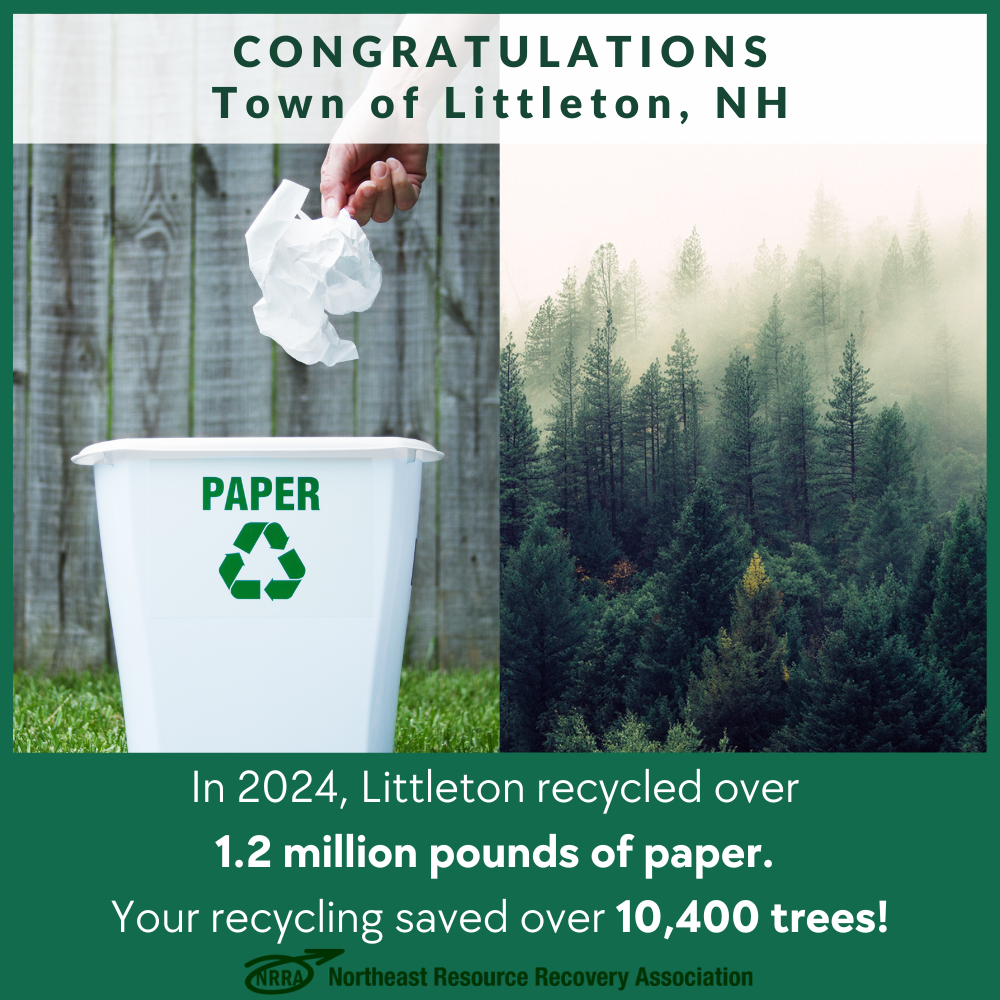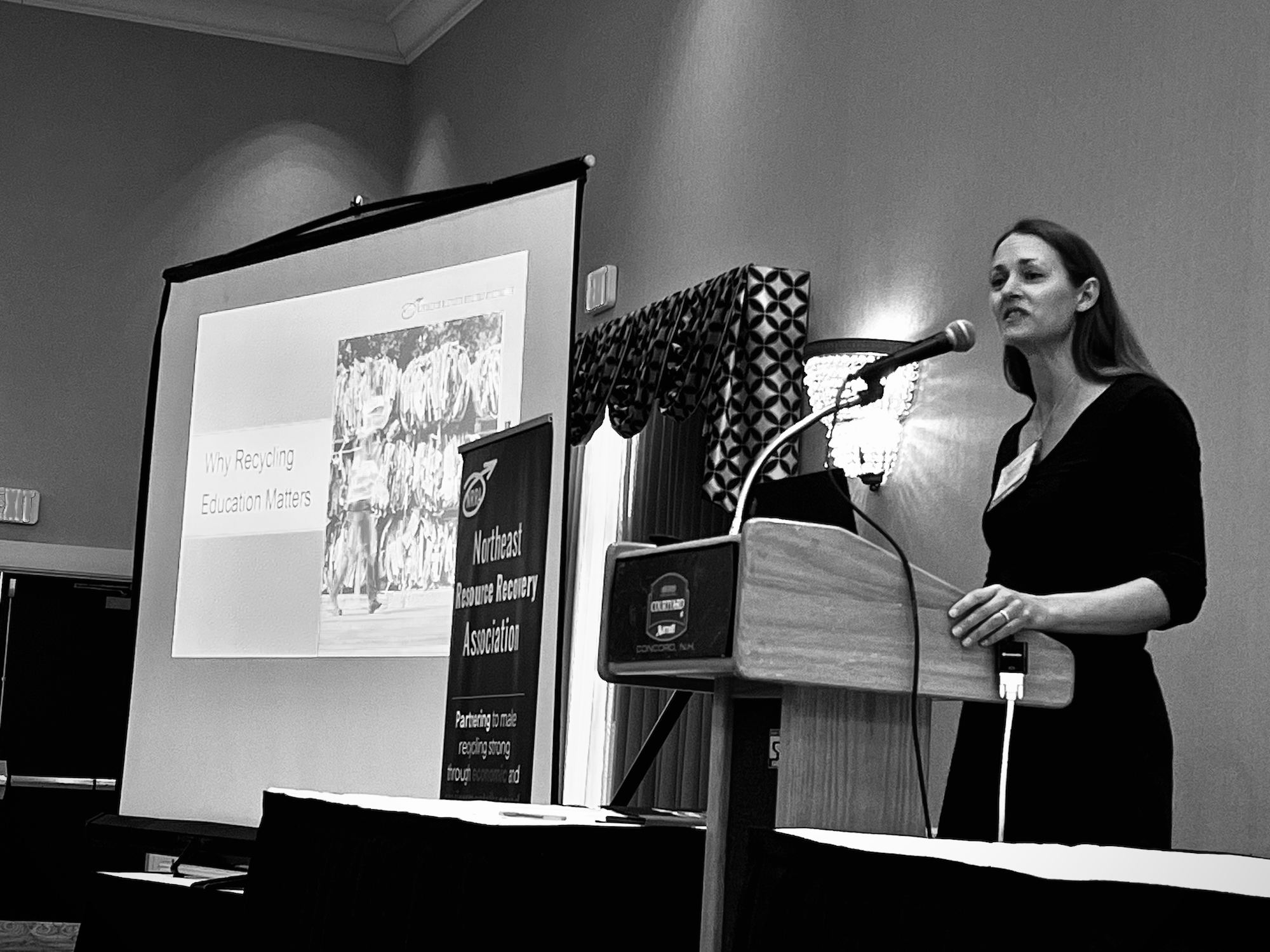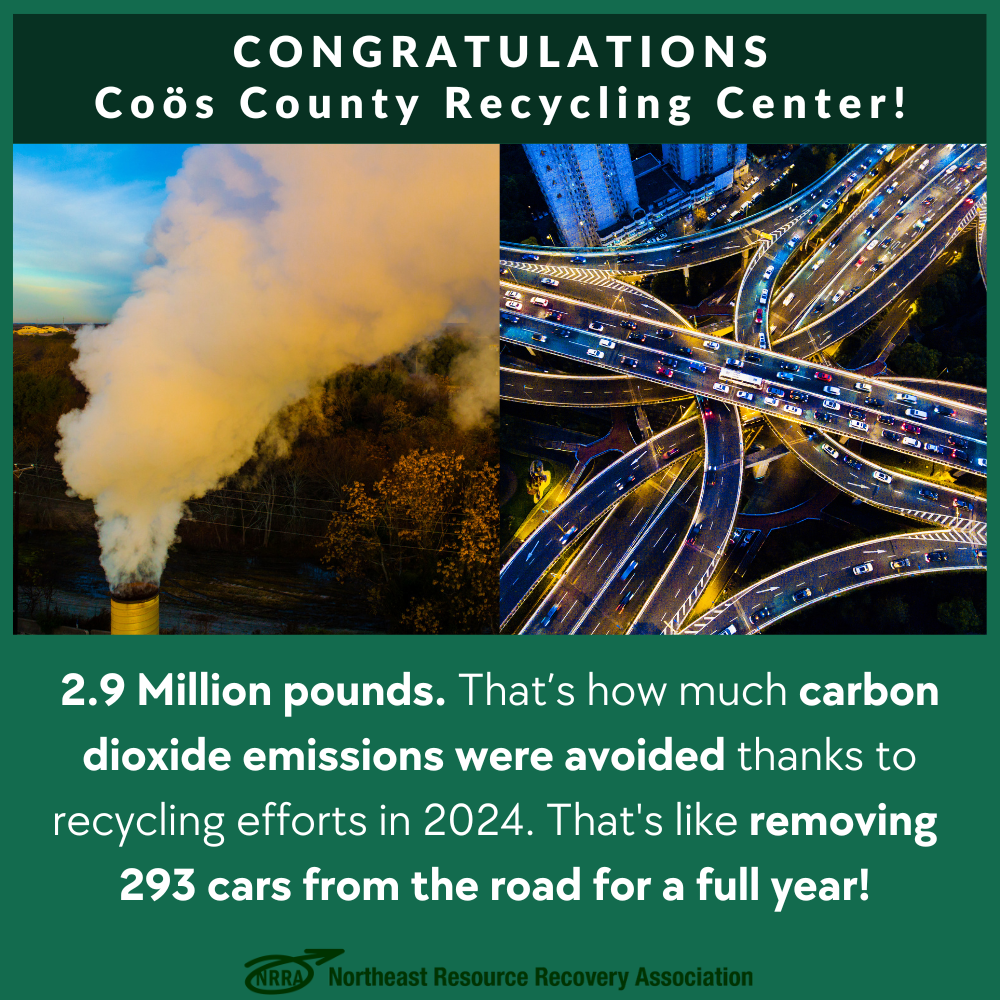The information contained in this article is not intended as legal advice and may no longer be accurate due to changes in the law. Consult NHMA's legal services or your municipal attorney.
It goes by many names – the “transfer station,” the “recycling center,” or even “the dump.” No matter what you call it, a town’s recycling and solid waste department is often the only municipal office bringing revenue into a town – not taxes, not fees, but revenue from the sale of recyclable materials. The amount of revenue a town can generate through recycling depends on several factors including the recycling market, the location of the town and processing facilities for the recyclables, and most importantly, the number of residents who participate in the program. The higher the recycling rate, the more recyclables collected, and fuller loads equate to higher prices when the recyclables are sold to market.
So how do towns get more people to recycle? In a word: education. Research from The Recycling Partnership has shown that incorporating consistent and ongoing educational outreach related to recycling is the best way to improve a municipal recycling program. Thanks to a highly competitive Recycling and Outreach Education grant through the US Environmental Protection Agency, the Northeast Resource Recovery Association (NRRA) is partnering with 30 North Country communities to increase recycling education this summer and fall through a Recycle Right North Country campaign. By highlighting the beneficial
economic and environmental impacts of recycling education on increasing recycling rates and tonnage, while decreasing the amount of trash being thrown in with recycling, NRRA will be able to apply lessons learned to all New Hampshire municipalities.
NRRA is the oldest and largest cooperative-model recycling non-profit in the country. Located in Epsom, NH, NRRA’s membership includes 90% of NH municipalities who can access the organization’s cooperative marketing, education, and technical assistance services.
The Recycle Right North Country campaign officially kicks off at NRRA’s annual Recycling Conference on May 19th and 20th in Concord, NH, with over 300 attendees, speakers, and exhibitors. This event is a unique opportunity for solid waste operators, volunteers, and residents to participate in workshops and meet experts in recycling, composting, hazardous waste, MSW (municipal solid waste), and more.

While NRRA has decades of experience providing recycling education and technical assistance, this campaign will be the first of its kind in NH to proactively measure the impact of recycling education on recycling behavior. Data collection in April, before the start of the campaign, sets a baseline for recycling rate, participation, and contamination (items that end up in recycling that should go in the trash). The goal of the Recycle Right North Country campaign is to increase residential recycling rates and participation, and decrease recycling contamination rates in the North Country.
The campaign has four objectives: resident outreach, train the trainers, in-person education, and a final Recycle Right Summit. All aspects of the campaign are free of charge for North Country municipalities, operators, residents, and visitors, investing over $400,000 worth of technical assistance and education, including stipends, outreach materials, and more in New Hampshire’s North Country.
Let us now break down what each campaign objective brings! Resident Education consists of direct mailings, print articles, social media posts, and radio PSAs about recycling designed for both residents and visitors. NRRA will also be releasing three videos that follow a recyclable from the transfer station or curbside to its ultimate destination to be processed – this helps make the recycling process more transparent. Finally, NRRA will be working with North Country transfer stations to improve signage to increase consumer understanding of acceptable recyclable materials. Signs will be updated in part through the New Hampshire the Beautiful facility sign program, which offers any New Hampshire recycling facility new signs free of charge annually (for more information, visit nhthebeautiful.org).


Train the Trainers is a dynamic training program for solid waste operators. It kicks off with the Recycling Conference in May, which operators were able to attend for free with registration, travel, and hotel stipends. Throughout the campaign the program highlights education for operators through a series of Recycle Right Roundtables held in-person in the North Country. These roundtables will provide operators with continuing education hours required by
the NH Department of Environmental Services. Operators will also attend two bus tours of recycling infrastructure in the area, held in June and September 2025. From a technical assistance standpoint, operators will have access to personalized Environmental Impact Reports and town specific Full Cost Accounting models to better show both local decisionmakers and residents the positive economic and environmental impacts of recycling.
In-Person Education brings recycling education right to the residents through door-to-door education – many will also receive small recycling totes to make recycling in an apartment easier. For the first time ever, NRRA will also be offering in-person Recycling 101 presentations to any group of 15 people or more in the North Country – be it at the library, a select board meeting, or just a group of private citizens interested in learning more. NRRA will even be popping up at select recycling centers to offer Recycle Right Rewards to residents and visitors caught recycling!
The Recycle Right Summit will be the culminating event of the campaign. Held in the North Country, this one day event is designed to bring together residents and solid waste operators for a mini–Recycling Conference. Attendees will be able to browse Recycle Right North Country campaign materials, watch community-specific videos on recycling, and attend workshops including a Recycling 101 presentation, Ask Me Anything (AMA) About Recycling, How Full Cost Accounting Can Help Your Town to Recycle Right, and a Solid Waste Operator Roundtable.
Once the campaign is complete, a second round of data will be collected, and a final report will be submitted to all participating towns and publicly released with highlights, challenges, and next steps. By showing the positive impact of recycling education on recycling rates, participation, and decreased contamination, NRRA will be better able to serve all NH members.

If you are a resident, visitor, or municipal employee in the North Country and would like to learn more about the Recycle Right North Country campaign or any of the materials and opportunities described above, please contact Andrea Folsom, Education & Grants Manager for NRRA at: afolsom@nrrarecycles.org.